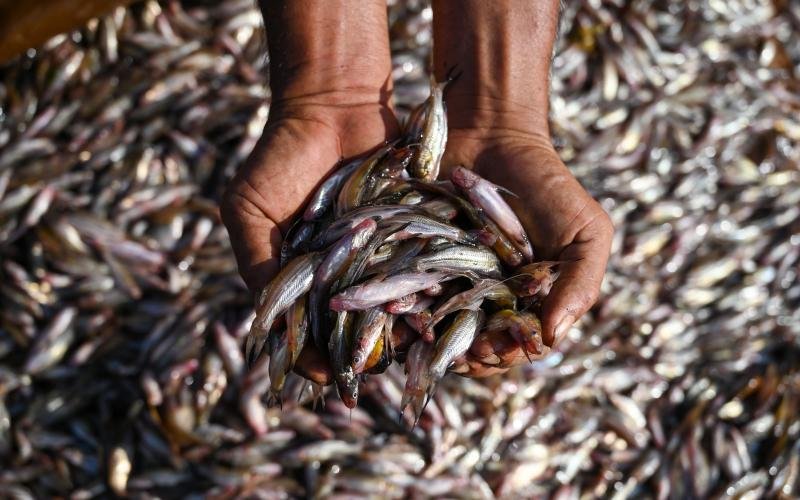Friday, 27 February 2026
Small fish a small solution to big problems
The new FAO paper ‘Small fish for food security and nutrition’ makes a compelling case that food insecurity and poverty can also be addressed through the harvesting and production of…

The new FAO paper ‘Small fish for food security and nutrition’ makes a compelling case that food insecurity and poverty can also be addressed through the harvesting and production of small fish
Small fish have long been a staple food in many low- and middle-income countries, yet their potential for addressing malnutrition and food security is only beginning to be realised. A new technical paper from the UN’s Food and Agriculture Organization (FAO) takes a broad look at all things small – from the fish themselves to the small-scale fishers who catch them, the small quantities they can be sold in, their (typically) low cost and the rich micronutrients they contain.
The nutritional value of small fish can be extraordinary, defying their tiny size – they are rich in animal proteins, omega-3 fatty acids and micronutrients and as they are often eaten whole, consumers benefit from micronutrients found in the head, bones, and other parts that may be discarded in larger fish. Consuming small fish also enhances the absorption of iron and zinc from fruits and vegetables. Accessibility is also important – small fish are often cheaper than other animal-source foods and can be purchased in small quantities.
The new FAO paper Small fish for food security and nutrition makes a compelling case that food insecurity and poverty can also be addressed through the harvesting and production of small fish, which form an important part of local livelihoods, particularly in coastal communities. Arguing that the small-scale fishers and local food systems that put these fish on the table have proven to be particularly resilient to global shocks, the paper concludes that globally, small fish are an undervalued resource for food security, nutrition and livelihoods, and could contribute to multiple Sustainable Development Goals.
WorldFish continues its pioneering research on small fish to tackle malnutrition and livelihoods while also empowering women. In India, for example, where more than a third of children have stunted growth, WorldFish scientists innovated mass breeding of mola, an indigenous small fish, rich in micronutrients. The project, integrated with the Odisha state government’s Mission Shakti initiative for women’s empowerment, produced more than 7 million mola hatchlings between June and September 2022, which were distributed to women’s self-help groups, improving access to nutrient-rich food, particularly for women and children in rural communities.
In Cambodia, indigenous small fish were successfully integrated into homestead ponds with carp and vegetable production, diversifying diets with nutrient-dense small fish while adding income from surplus fish.
Technology
Ingredion Thailand Achieves 100% Sustainably Sourced Cassava
Feb 27, 2026 | Company News
Deakin University and Bellarine Foods Partner to Develop Sustainable Marine-Derived Proteins
Feb 26, 2026 | Australia
Royal Unveils Refreshed Jute Bag Design for 20lb Authentic Basmati
Feb 25, 2026 | Company News
Food Testing
Australian Medical Bodies Push for Compulsory Health Star Labelling
Feb 24, 2026 | Australia
Tim Hortons Singapore Secures Majlis Ugama Islam Singapura Halal Certification Ahead of Ramadan
Feb 23, 2026 | Company News
More Popular
Fagron Acquires Pharmavit Europe for €68Mn to Expand Nutraceutical Portfolio
Feb 27, 2026 | Company News
Arla Foods Invests EUR 300Mn in New Cheese Dairy in Sweden
Feb 27, 2026 | Company News
Beyond Meat Broadens Portfolio Beyond Protein with Sparkling Plant-Based Drink Line
Feb 27, 2026 | Beverages






